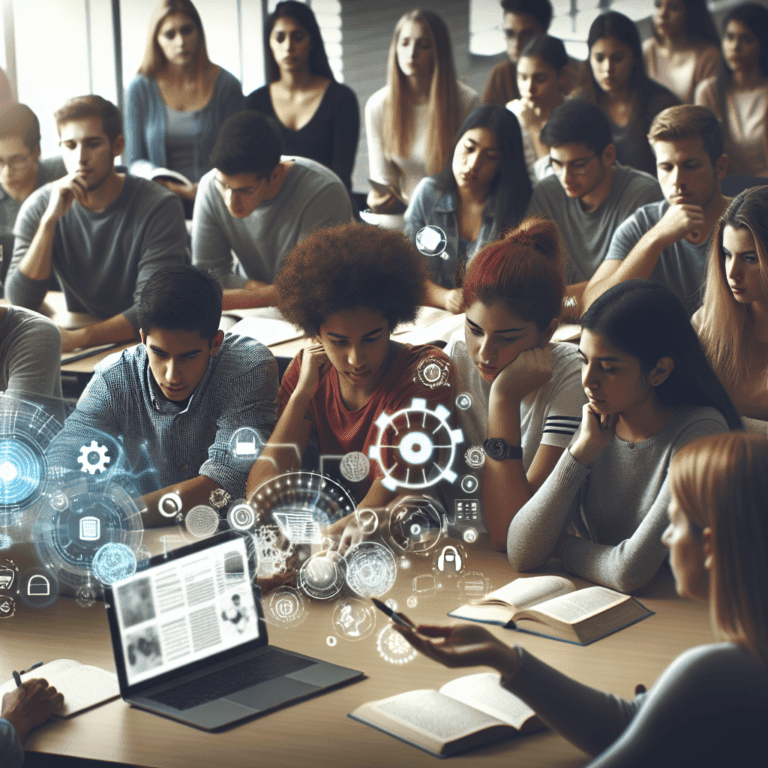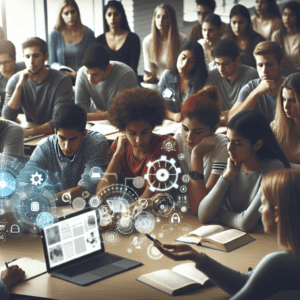Enhancing Student Learning through Innovative Educational Programs
Education is undergoing a transformative phase as schools and educational institutions embrace innovative programs designed to enrich the learning experience. These initiatives aim to cater to varying learning styles, foster critical thinking, and prepare students for the complexities of the modern world. By implementing creative strategies and technologies, educators are able to enhance student engagement and bolster academic achievement.
Personalized Learning Approaches
One of the cornerstones of modern educational innovation is personalized learning. This approach tailors educational experiences to meet individual student needs, interests, and abilities. Utilizing data and technology, teachers can create customized lessons that resonate with each student, ensuring that they receive the right level of challenge and support. This method not only makes learning more enjoyable but also encourages students to take ownership of their education.
Project-Based Learning
Project-Based Learning (PBL) offers an opportunity for students to immerse themselves in real-world problems through collaborative projects. This hands-on approach allows students to engage deeply with the material, working together to develop solutions that require critical thinking, creativity, and teamwork. By engaging in projects that have relevance beyond the classroom, students are more likely to retain information and develop a passion for learning.
Integration of Technology
The integration of technology in education has created new pathways for enhancing student learning. Modern classrooms are equipped with tools such as tablets, interactive whiteboards, and online learning platforms. These resources not only facilitate access to a vast amount of information but also enable interactive and engaging teaching methods. Furthermore, the use of educational software can help track student progress in real-time, allowing educators to adjust their teaching strategies based on individual performance.
Experiential Learning
Experiential learning programs encourage students to learn by doing. This method emphasizes hands-on experiences, whether through internships, field trips, or simulations, allowing students to connect theoretical knowledge with practical application. By engaging directly with the subject matter, students gain a deeper understanding and appreciation for what they are studying. Such experiences often lead to increased motivation and a greater likelihood of pursuing knowledge in related fields.
Incorporation of Social-Emotional Learning
Social-Emotional Learning (SEL) plays a significant role in student success, impacting both academic performance and personal development. Innovative educational programs that incorporate SEL help students build skills such as empathy, resilience, and effective communication. These competencies are essential for navigating interpersonal relationships and managing stress, making them crucial for holistic educational growth. As students learn to manage their emotions and work collaboratively, they become better equipped to face challenges both inside and outside the classroom.
Collaborative Learning Environments
Creating a collaborative learning environment fosters a sense of community among students. Innovative programs that promote group work and peer-to-peer interactions encourage active participation and social engagement. When students collaborate, they learn from one another, sharing diverse perspectives and ideas. This not only enhances their problem-solving skills but also builds strong relationships and a supportive classroom atmosphere.
Continuous Professional Development for Educators
For innovative educational programs to thrive, continuous professional development for educators is essential. Teachers equipped with the latest pedagogical strategies and technologies can implement changes more effectively, bringing new energy into the classroom. Ongoing training ensures that educators remain adaptable and responsive to the evolving needs of their students, ultimately enhancing the learning experience.
Conclusion
Innovative educational programs are revolutionizing the way students learn, fostering an environment that promotes engagement, collaboration, and personal growth. By prioritizing personalized learning, experiential opportunities, and the integration of social-emotional skills, these programs equip students with the tools needed for success in an ever-changing world. As educational institutions continue to innovate, they pave the way for a brighter future where every student has the potential to thrive.







